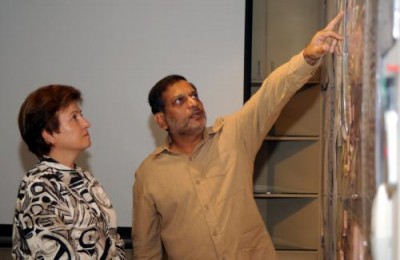The EU needs a stronger crisis response system

(BRUSSELS2) "Our system is working well. But we can do better", here is in essence what the European Commissioner, Kristalina Georgieva, in charge of civil protection, developed in front of MEPs, during a hearing of the "Development" committee devoted to the European response to Pakistan, this Tuesday in European Parliament.
« The EU force, I do not see it as a command post, with everyone who will obey me explained to the deputies the European commissioner. " But we can better coordinate the work with the Member States, in a more visible way. When we talk about the European Union, we must see 27 Member States speaking with one voice. But today, we tend to see some countries and not others. This remark can also be addressed to the European Commission., she added. " We must be self-critical and not only highlight what the European Commission is doing but also what others are doing, what we are doing together. »
A mechanism for anticipating needs
« The EU needs a stronger crisis response mechanism pleaded the commissioner. " This system works today. But what we need to strengthen means of anticipation. Each time the Member States are asked for certain means, they respond. But we never know what they'll answer ". A point that the Commissioner was kind enough to explain to me in a little more detail. " It is, in fact, — says Georgieva — to ask each Member State in advance what they can or want to provide (teams, equipment, pumps, etc.), thus having a list of means available at all times. This would have an advantage: knowing what can be provided in advance, making it possible to make a precise offer to the country which suffers a natural disaster, and be faster and more responsive in response”.
Use of military forces for humanitarian aid: be careful
On the use of military means, faced with a humanitarian situation, the Commissioner expressed her reluctance to MEPs. " Currently, NATO planes are bringing aid to Pakistan. It's useful. But in some cases, it can have a more negative effect. If you think that humanitarian aid with military means is not a good idea, ... think about it. Humanitarian aid must remain absolutely neutral she concluded, in front of parliamentarians who are often opposed to this use of combining military and humanitarian means. The commissioner had already confided, before her departure to Pakistan, to be rather skeptical: “ We have to be very careful how we organize our cooperation with the military. It should only be used if necessary and appropriate. However, sometimes it is not necessary. Sometimes it's not appropriate »
download the commissioner's initial speech
(Nicolas Gros-Verheyde)
